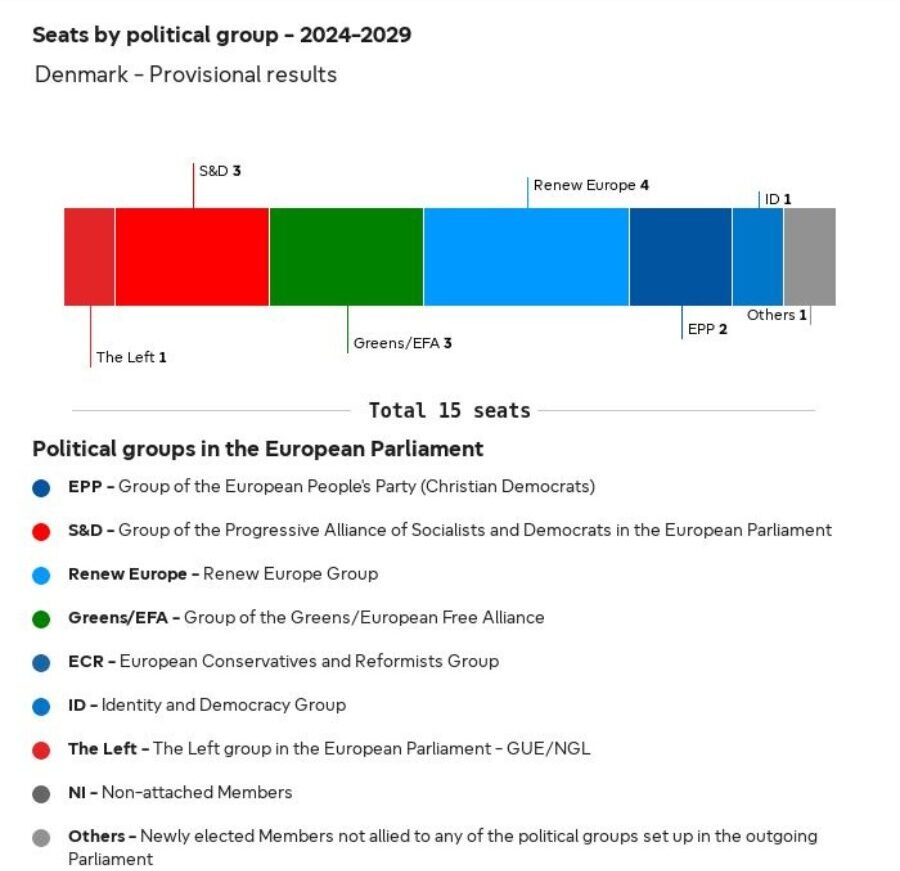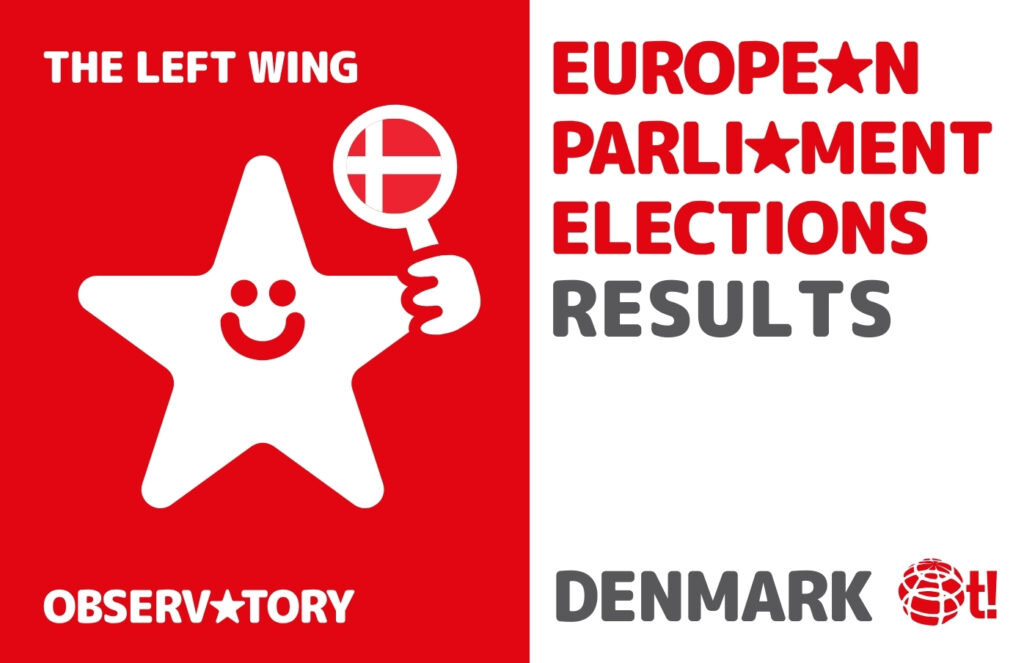This is the first comment on the Danish European elections from our member organisation Transform!Denmark. Detailed analyses will follow.
Denmark’s EP elections: A Reflection of Domestic Politics
The outcome of the European Parliament (EP) elections in Denmark primarily reflects the current domestic political climate. The Social Democrats emerged as the significant losers, largely due to the public’s dissatisfaction with the coalition government they formed in 2022 with two right-wing parties. This government has faced severe unpopularity for its neo-liberal right-wing policies.

Source: Verian for the European Parliament (https://results.elections.europa.eu/en/national-results/denmark/2024-2029/)
Social Democrats’ mixed fortunes
Despite their defeat, the Social Democrats retained their three seats, the same number as before the elections. This retention was largely due to a fortunate electoral alliance with THE ALTERNATIVE, which failed to secure any seats, and the Socialist People’s Party (SF), which garnered the most votes in the elections. SF increased its representation from two to three seats and is part of the Green group in the EP.
Left-wing gains: a protest vote?
Enhedslisten/Red-Green Alliance (RGA) secured one seat, marking a 1.5% increase in votes. The Danish elections witnessed a rise in support for parties left of the Social Democrats, signaling a protest against the current government’s lack of traditional social democratic policies. Both RGA and SF now advocate for policies reminiscent of old social democratic ideals, with RGA slightly to the left of SF.
Weakening right-wing forces
The Danish right and extreme right are fragmented and relatively weak. Each faction secured one seat in the elections, while the right-wing party Venstre lost two seats, ending up with just two. Unlike Germany and France, Denmark lacks a prominent extreme right, as the lines between the right and extreme right remain blurred.




